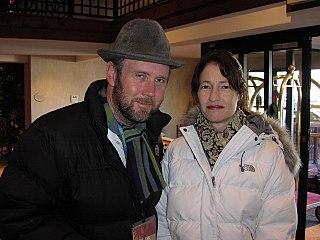A Quote by Christopher Voss
Consider this: Whenever someone is bothering you, and they just won't let up, and they won't listen to anything you have to say, what do you tell them to get them to shut up and go away? 'You're right.' It works every time. But you haven't agreed to their position. You have used 'you're right' to get them to quit bothering you.
Related Quotes
With the artists, I don't teach, I coach. I can't tell them how to make art. I tell them to make more art. I tell them to get up early and stay up late. I tell them not to quit. I tell them if somebody else is already making their work. My job is to be current with the discourse and not be an asshole. That's all I wanted in a professor.
It's kind of fun at my age to go back and talk to business-school people. I tell them, "I can summarize everything you need to know to lead a major corporation. Are you prepared to write this down?" And then they get all ready. I tell them I can summarize how I succeed as a leader: Listen to your employees, listen to your customers, shut the f - - up, and do what they tell you.
I go straight in very close to people and I do that because it's the only way you can get the picture. You go right up to them. Even now, I don't find it easy. I don't announce it. I pretend to be focusing elsewhere. If you take someone's photograph it is very difficult not to look at them just after. But it's the one thing that gives the game away. I don't try and hide what I'm doing - that would be folly.
Breakfast is the best time for me to figure out what my kids are doing. Right after you wake them up at breakfast, you pepper them with questions. You can get in there because they're not protecting what they thought was cool: "What happened yesterday?" "Oh, Matthew stole my book and ran away and it was really annoying..." That wouldn't happen after lunch, because their defenses are up. In the morning, if you lull them into a comfortable place, you get more honesty, and that's without being a detective.
When people say "Let it go," what they really mean is "Get over it," and that's not a helpful thing to say. It's not a matter of letting go - you would if you could. Instead of "Let it go," we should probably say "Let it be"; this recognizes that the mind won't let go and the problem may not go away, and it allows you to form a healthier relationship with what's bothering you.


































